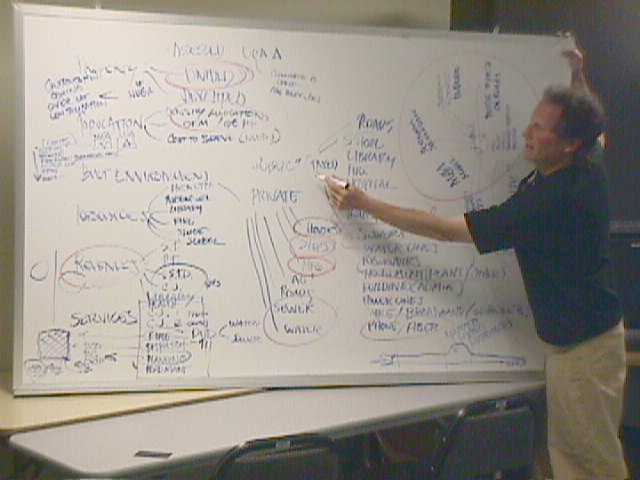This term (BAS) gets bandied about quite a bit these days. Mostly by people who do not know what it really means. Its meaning has been practically constrained by the needs of two powerful factions with somewhat different needs: the economic interests of the professional science lobby, and the reluctance of electeds and their designated decision-makers to make "hard" decisions. Which is to say, decisions which might prove to be "hard" on some of their constituents, and are therefore "hard" to make. The area of overlap between these group's need-sets defines the meaning of the term.
Katherine Baril has a great story that I am going to post as an interview, about the creation of the EPA, in the wake of Nixon's signing the historic Clean Water Act. And how it came to pass that in the US "Environmental Protection" became the domain of lawyers and regulatory scientists rather than the domain of ecologists and environmental scientists. And the fundamental irony of that situation as it applies to the burden of proof, and whose burden it has become, and what must be proven .
This is a much larger story than I am addressing here: the story of how it came to pass that it became the inalienable right of corporations to do harm and the responsibility of society to prove harm has been done - and how the legal construct "beyond reasonable doubt" (which in ecospeak is just another way of saying "we have clearly defined the point of no return and are now crossing it ... ") seems to have become a condition of that proof.
But in the meantime, we are stuck with this awkward situation where the electeds (and the general public) have been convinced that they need hard science to draw hard lines to support hard decisions, because if they don't have the hard science (and hard data) to support their decisions, then lawyers will bring in experts to knock the flimsy foundations out from under their squishy assumptions and tear their house-of-cards regulatory framework apart (causing a domino effect that exposes the foxes guarding the henhouse, I suppose) ... I don't know how far to carry this.
But the regulators cannot just hire staff scientists (agency scientists) to develop lawyer-proof policy. Because the academics who control the orthodoxy of "hard science" and work for the lawyers as "experts" will come in and challenge the validity of the data and the methodologies of the field scientists and the conclusions of agency scientists, in an all-or-nothing effort to demonstrate its complete inapplicability to the conclusion at hand, without further studies. Because this is how an orthodoxy works. Science is a really big business now, a secular orthodoxy. There are almost certainly more scientists alive now than all the scientists who have died in history (and more lawyers, too) and they are almost all looking for work.
Let the science consumer beware.
The most ferociously disputed opening line I ever offered as a journalist began "Geologists generally agree ..." I had called Roland Tabor, the guy who had mapped the peninsula for USGS and decoded the pattern of tectonic activity that had resulted in the land form we know, the guy who had "written the book" and then after a through rewrite of my own article I had called the Park Service's geologist, who had written a book of his own, that appeared to me to be completely congruent with and largely dependent on Tabor's earlier work, and he didn't even l;et me finish the first sentence. He said "Stop right there: Geologists NEVER agree."
The area of overlap between these two group's need-sets SHOULD define the meaning of the term "Best Available Science" - it should be available and it should be science and it should be applicable. But in fact, the scientists DO agree on one thing. And they agree with the electeds on this, too. They agree on the need for more studies.
Before the electeds will make decisions, they need recommendations, and before the scientists will make recommendations they need more studies. But as soon as the study is published in DRAFT form, other scientists working for people (or their lawyers) who for one reason or another do not want a hard line to be drawn "yet" will step up to the plate, shred the report, and demand more studies.
You think that's funny? Listen to this!
http://www.co.jefferson.wa.us/commdevelopment/PDFS/2004Cycle/BAS/BASletterWSAC.pdf
The next installment of this discussion will address the problem of "repurposing" data.
Tuesday, June 12, 2007
Subscribe to:
Post Comments (Atom)
Why Me?

- joe breskin
- port townsend, washington, United States
- My diverse career paths all share a common thread. They all involve putting tools and an understanding of how to use them into the hands of people who generally know what they want to do, but do not necessarily know how to do it.
No comments:
Post a Comment